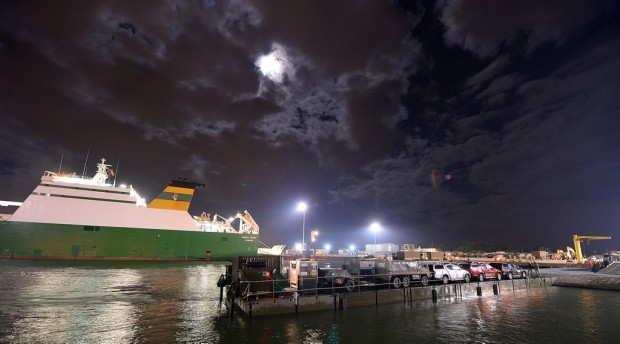Among this morning’s top Defence stories is the news that in Ukraine deadly clashes have broken out between police and nationalist protesters in Kiev.
Trident renewal
It is reported that Nicola Sturgeon has questioned the Chancellor’s spending priorities after he pledged more than £500m to keep Britain's nuclear deterrent in Scotland.
On a visit to HM Naval Base Clyde, the Chancellor said the cash will fund the construction of sea walls, jetties and other projects as it gets ready to host the country's entire submarine fleet.
The 10-year programme beginning in 2017 will secure 6,700 jobs and create thousands more, Mr Osborne said.
Faslane is home to missile-carrying Vanguard submarines and recently welcomed the third of seven planned Royal Navy Astute class attack submarines.
We are fully committed to retaining the Trident continuous at sea nuclear deterrent. We will build the new fleet of four Successor Ballistic Missile Submarines – securing thousands of highly skilled engineering jobs in the UK.
The Chancellor said on Monday:
Today's announcement of more than GBP500 million demonstrates the UK Government's commitment to investing in the infrastructure and capability to ensure that Faslane remains the centre of UK submarine operations for the next generation.
I'm proud to say that this Government continues to recognise that our brave armed forces across Britain have always been resolute in defence of liberty and the promotion of stability around the world.
That's why I recently committed to meet the Nato pledge to spend 2% of our national income on defence every year of this decade. A strong and secure country is vital to both our prosperity and national security.
There will be thousands more jobs right here in Faslane, as well as across the UK supply chain. Across Scotland, around 12,600 people work in defence and my defence spending commitments will secure these jobs and provide huge opportunities for defence, security and technology companies all over the UK.
ISIL
The Times reports on yesterday’s Telegraph article by Boris Johnson, in which he argued that Britain must intervene in Syria to halt the Mediterranean migration tragedy and save the country's ancient ruins. He warned that a failure to intervene could lead to "an eternity of refugees”.
It is also reported that James Gray MP, member of the Defence Select Committee, has argued that the Prime Minister has the right to ignore “the niceties of parliamentary procedure” in making a decision on whether to bomb Syria. He says a Commons debate would "ruin the element of surprise". Downing Street is said to be considering a parliamentary vote on extending the bombing campaign against ISIL into Syria.
As the Defence Secretary has said:
We have always been clear that ISIL has to be defeated in Syria and Iraq. ISIL is organised and directed and administered from Syria and there is an illogicality about not being able to do it. The US and others are striking in Syria which means we can play our part in Iraq. I think MPs will want to think about how we best deal with ISIL.
The UK continues to play a leading role in activity that has, so far, seen ISIL lose 25% of its territory in Iraq - RAF aircraft have carried out more than 270 air strikes and have flown over 1,200 missions, we have around 800 people supporting operations against ISIL and have trained nearly 2,000 Iraqis on the ground.
Find out more about the UK Government’s actions to counter ISIL.
Ukraine
It is widely reported that deadly clashes have broken out between police and nationalist protesters in Kiev after politicians gave their support for greater autonomy in the separatist regions in the east. According to reports, at least one soldier has been killed and more than 100 people have been injured.
We are providing non-lethal assistance that has been requested by the Ukrainian Government to enhance the capability of their armed forces, enabling them to better defend themselves and reduce the number of fatalities and casualties that they are suffering.
Defence Secretary Michael Fallon said recently:
Our training programme for the Ukrainian Armed Forces continues to be well-received and highly valued by troops and commanders in the east of the country. Since March, 13 UK training teams have deployed across 8 locations and we expect to have trained around 2,000 members of the Ukrainian Armed Forces by the end of the year.
By adding further much-needed skills and stepping up the pace of our programme we can provide more and better training, improving the resilience of Ukrainian forces and further reducing casualties resulting from the ongoing conflict.
Image of the day:

Part of the exercise involved the units vehicles being shipped over to the island courtesy of 17 Port & Maritime RLC based at Marchwood, using Mexefloat craft.
The HAC is a dedicated surveillance and target acquisition (STA) regiment with a role of identifying and tracking enemy activity.
It is a highly specialised role and the exercise, entitled Vambrace Horizon, is designed to test and improve this capability.
The Isle of Wight offers a unique training opportunity for the regiment by providing a challenging and unfamiliar environment compared to the remote military training areas normally used.
Follow us on Twitter and don’t forget to sign up for email alerts.
